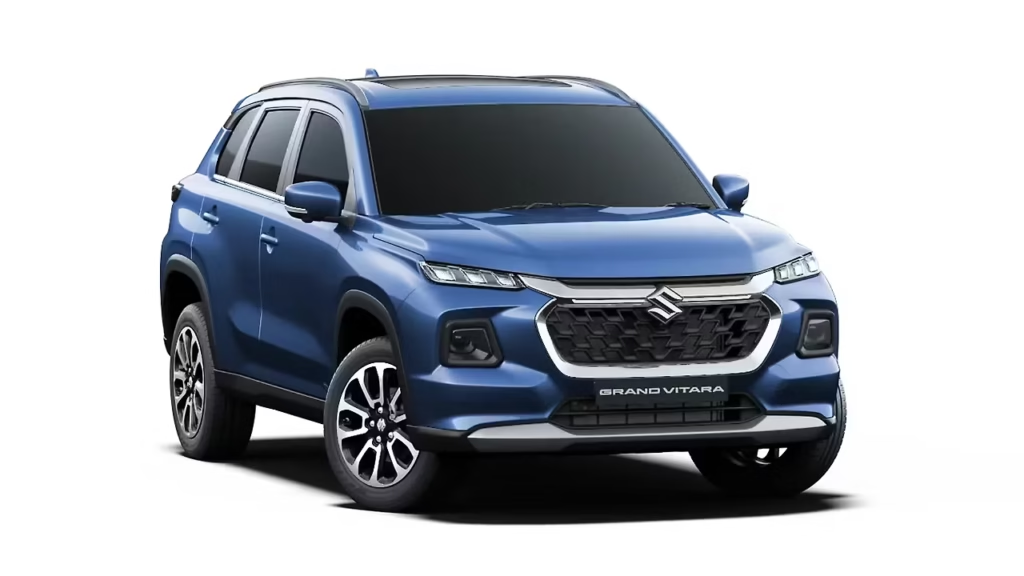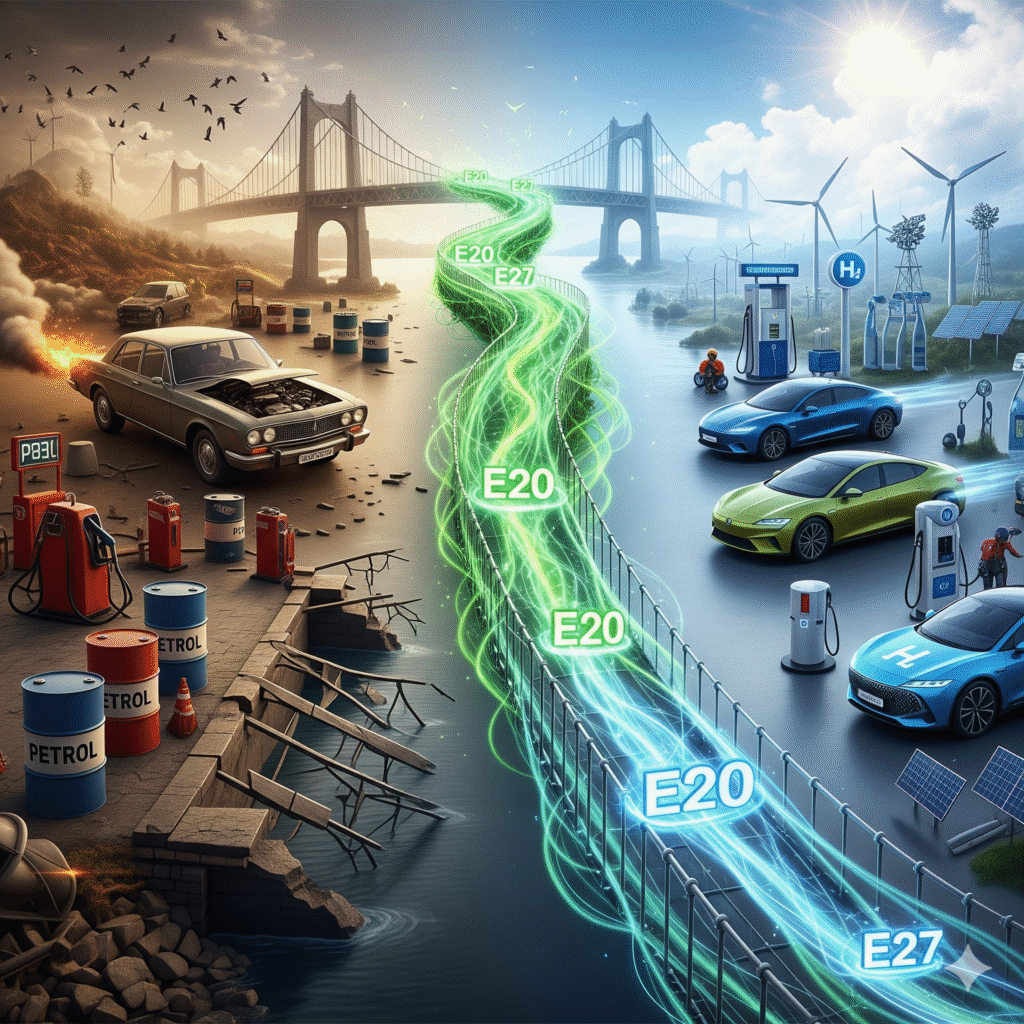As India accelerates its transition towards greener mobility, the hybrid car segment is poised for explosive growth in the coming years. With stricter emission norms, rising fuel prices, and government incentives under the FAME-III scheme, automakers are ramping up investments in hybrid technology. From compact crossovers to premium SUVs, 14 exciting hybrid models are set to hit Indian roads between 2026 and 2028, offering a blend of efficiency, performance, and affordability. Leading the pack are familiar names like Maruti Suzuki and Hyundai, alongside fresh entrants from Mahindra and Volkswagen.
Here’s a comprehensive rundown of these upcoming hybrids, complete with expected launch timelines and standout features.
1. Maruti Suzuki Fronx Hybrid
The first vehicle on this list is a crossover SUV from Maruti Suzuki, the Fronx Hybrid. This particular SUV will be getting a series hybrid system in which the 1.2-litre Z12E, 3-cylinder petrol engine will act as a generator and charge the battery pack in the vehicle. As for the power to the wheels, it will be provided by electric motors. It is believed that it will be launched sometime next year, in 2026. Expected price: ₹12-15 lakh. This setup promises up to 25-30 km/l efficiency, making it ideal for city slickers.2.
2.Toyota Urban Cruiser Taisor Hybrid
As Maruti’s badge-engineered twin, the Toyota Urban Cruiser Taisor Hybrid mirrors the Fronx’s series hybrid powertrain, featuring the same 1.2-litre Z12E generator and electric motors for propulsion. It adds Toyota’s reliability with Level 2 ADAS, refreshed styling, and premium interiors. Launch: A few months after the Fronx in 2026. Expected price: ₹13-16 lakh. Perfect for those seeking Toyota’s after-sales peace of mind in a compact package.
3. Hyundai Creta Hybrid
Hyundai’s bestseller gets a strong hybrid upgrade with a 1.5-litre naturally aspirated petrol engine paired with a single electric motor and a 1.6 kWh battery for seamless EV-mode driving. Expect enhanced torque (up to 230 Nm combined) and 25+ km/l mileage. Launch: Around 2027. Expected price: ₹18-22 lakh. This will solidify the Creta’s dominance in the mid-size SUV arena with added tech like a panoramic sunroof.
4. All-New Kia Seltos Hybrid
Capping our list is the redesigned Kia Seltos Hybrid, sharing the Creta’s strong hybrid setup (1.5-litre petrol + electric motor) but with Kia’s sporty flair—bold exteriors, ventilated seats, and a 360-degree camera. It promises 27 km/l efficiency and AWD options. Launch: 2027-28. Expected price: ₹19-24 lakh. A style icon reborn for eco-conscious adventurers.
5. Mahindra XEV 9E Hybrid
Mahindra’s electric SUV lineup expands with the XEV 9E Hybrid, a range-extender series hybrid using a 1.2-litre petrol engine to recharge its battery, extending real-world range beyond 500 km. Built on the INGLO platform, it features dual screens and Level 2 ADAS. Launch: Late 2026. Expected price: ₹25-30 lakh. Aimed at highway haulers needing petrol backup.
6. Mahindra BE 6 Hybrid
The BE 6 Hybrid follows suit with the same series hybrid tech (1.2-litre generator + electric drive) on the INGLO platform, offering a spacious cabin and 600+ km total range. Highlights include a triple-pane sunroof and Harman Kardon audio. Launch: Mid-2026. Expected price: ₹22-28 lakh. Mahindra’s bid to capture the premium hybrid SUV market.
7. Honda Elevate Hybrid
Honda brings its e:HEV tech to the Elevate SUV with a 1.5-litre Atkinson-cycle engine, electric motor, and e-CVT for smooth 30 km/l efficiency. It retains the Elevate’s bold stance with added hybrid perks like regenerative braking. Launch: Second half of 2026. Expected price: ₹16-20 lakh. A refined alternative to turbo-petrol rivals.
The next-gen Duster starts with a mild-hybrid turbo petrol but upgrades to a full strong hybrid: 1.6-litre four-cylinder petrol + two electric motors and 1.2 kWh battery for 28 km/l. Rugged design meets urban efficiency. Launch: Late 2026 or early 2027. Expected price: ₹14-18 lakh. Renault’s comeback in the compact SUV space.
9. Nissan Terrano Hybrid
Rebadged from the Duster, the Nissan Terrano Hybrid adopts the same 1.6-litre strong hybrid system, emphasizing Nissan’s safety suite with 360-view cameras. Launch: Not before 2027. Expected price: ₹15-19 lakh. A value-packed option for families seeking hybrid reliability.
10. Volkswagen Virtus Hybrid
VW’s sedan gets a hybrid twist with an updated 1.5-litre TSI Evo2 engine integrated into a strong hybrid setup for better mileage (25+ km/l) and reduced emissions. European build quality shines through. Launch: 2027. Expected price: ₹16-20 lakh. Appeals to enthusiasts wanting sedan dynamics with green creds.
11. Volkswagen Taigun Hybrid
The Taigun SUV mirrors the Virtus’s 1.5-litre TSI hybrid powertrain, adding SUV versatility with 200+ mm ground clearance and optional 4Motion AWD. Launch: 2027. Expected price: ₹17-21 lakh. VW’s answer to the hybrid SUV boom.
12. Skoda Slavia Hybrid
Skoda’s elegant sedan pairs the 1.5-litre TSI with hybrid tech for refined performance and 26 km/l efficiency. Premium touches like ventilated seats included. Launch: 2027. Expected price: ₹16-20 lakh. A sophisticated choice for highway commuters.
13. Skoda Kushaq Hybrid
The Kushaq SUV gets the same 1.5-litre TSI hybrid, boosting its sporty appeal with Czech engineering and ADAS. Launch: 2027. Expected price: ₹17-21 lakh. Skoda’s hybrid entry to rival the Taigun.
14. Maruti Suzuki Grand Vitara 7-Seater
HybridRounding out the list, Maruti’s popular Grand Vitara expands to seven seats with a strong hybrid (1.5-litre + electric motor) for family-friendly 25 km/l efficiency. Launch: Early 2026. Expected price: ₹15-20 lakh. A versatile MPV-SUV hybrid for growing households.These launches signal a hybrid renaissance in India, with over 20 models expected by 2027. From Maruti’s affordable series hybrids to Kia’s premium strong setups, buyers will have plenty of efficient options. As battery costs drop and charging networks grow, hybrids could capture 15-20% market share by 2030—keep an eye on these game-changers!



